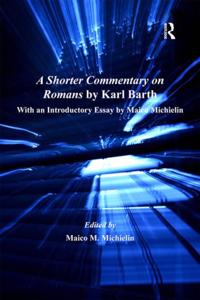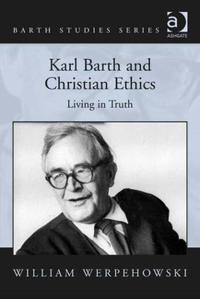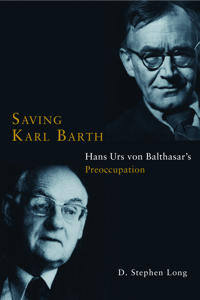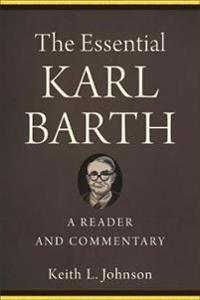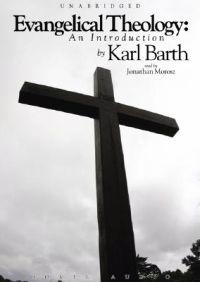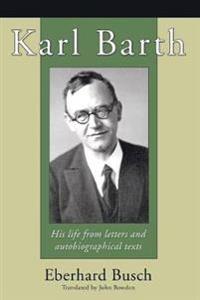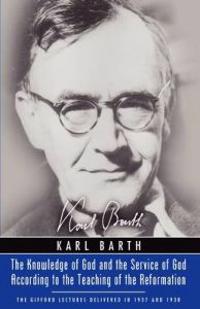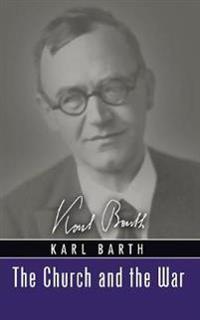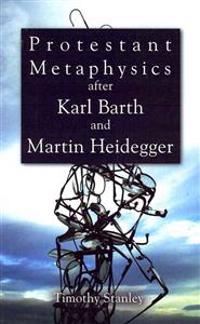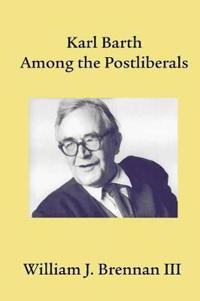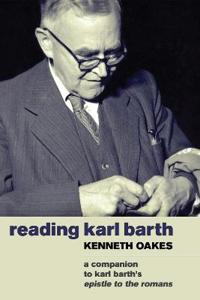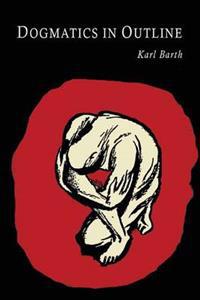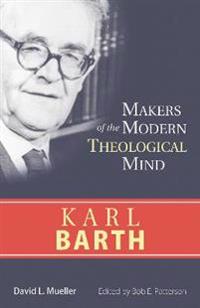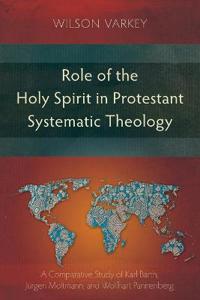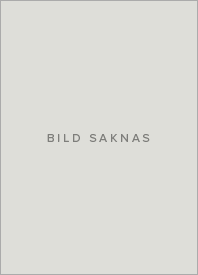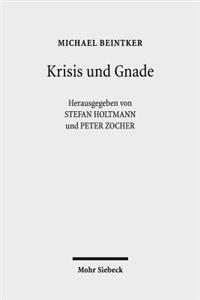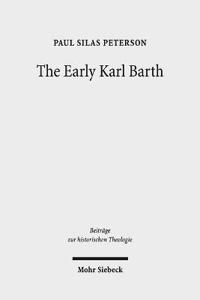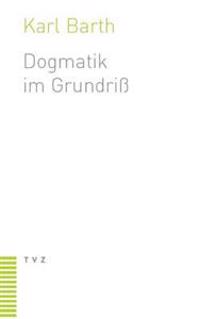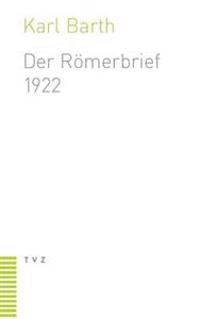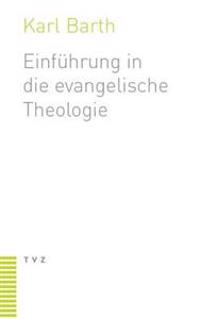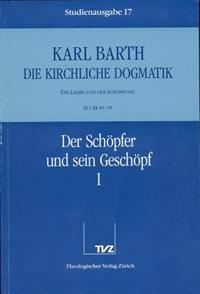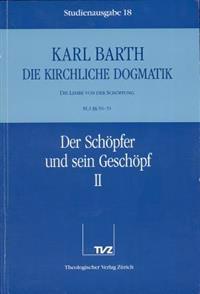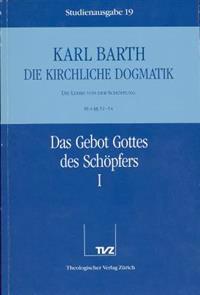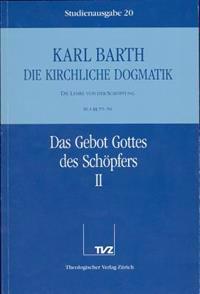Shorter Commentary on Romans by Karl Barth
ISBN: 9781317186823 - UTGIVEN: 2016-03First published in 1959, Karl Barth's A Shorter Commentary on Romans originated as the manuscript for a course of extra-mural lectures held in Basle during the winter of 1940-41. During this time, Barth continued to resist the Nazi regime and its influence on the Reformed Church as he did when he wa[...]
Karl Barth and Christian Ethics (Inbunden)
avWilliam Werpehowski
ISBN: 9781409438755 - UTGIVEN: 2014-02This critical study of Karl Barth's Christian theological ethics discusses Barth's controversial and characteristically misunderstood ethics of divine command. The surprising relation of his 'divine command ethics' to contemporary 'narrative theology' and 'virtue ethics' and specific moral themes co[...]
Saving Karl Barth (Häftad)
ISBN: 9781451470147 - UTGIVEN: 2014-02Challenging recent rejections of Hans Urs von Balthasar's groundbreaking study of Karl Barth's theology, Stephen Long argues that these interpreters are myopically impatient with the nuances of Balthasar's reading of Barth and fail to appreciate the longstanding theological friendship that perdured.[...]
The Essential Karl Barth
ISBN: 9781540960733 - UTGIVEN: 2019-04Karl Barth is one of the most influential theologians of the 20th century. His work is considered essential reading for nearly every student of theology. Reading Barth's theology poses a challenge, however, because of the sheer size of his corpus, the complexity of his claims, and the distance betwe[...]
Evangelical Theology: An Introduction (Övrigt)
avKarl Barth, Jonathan Marosz
ISBN: 9781596443280 - UTGIVEN: 2005-10Karl Barth: His Life from Letters and Autobiographical Texts (Häftad)
avEberhard Busch
ISBN: 9781597521697 - UTGIVEN: 200506The Knowledge of God and the Service of God According to the Teaching of the Reformation (Pocket)
avKarl Barth, J. L. M. (TRN) Haire, Ian (TRN) Henderson
ISBN: 9781597524278 - UTGIVEN: 2005-11The Church and the War (Häftad)
avKarl Barth, Samuel McCrea Cavert
ISBN: 9781606080269 - UTGIVEN: 2008-07Protestant Metaphysics After Karl Barth and Martin Heidegger (Häftad)
avTimothy Stanley
ISBN: 9781608996919 - UTGIVEN: 2010-08Karl Barth
ISBN: 9781619707351 - UTGIVEN: 2016-01Karl Barth (1886-1968) is perhaps the most influential Protestant theologian of the twentieth century. He has been called a modern "church father," who belongs in the list of the most illustrious theologians in the history of Christianity. The whole course of modern theology changed direction becaus[...]
Role of the Holy Spirit in Protestant Systematic Theology: A Comparative Study Between Karl Barth, Jürgen Moltmann, and Wolfhart Pannenberg (häftad)
ISBN: 9781907713101 - UTGIVEN: 2011-07Karl Barth's Theological Exegesis: The Hermeneutical Principles of the Romerbrief Period (häftad)
ISBN: 9783161476778 - UTGIVEN: 2001-12For many scholars of theology, Karl Barth's break with liberalism is the most important event that has occurred in theology in over 200 years. Richard Burnett shows that an important part of Barth's break was his attempt to overcome the hermeneutical tradition of Schleiermacher. This is reflected th[...]
Krisis Und Gnade: Gesammelte Studien Zu Karl Barth (häftad)
ISBN: 9783161524981 - UTGIVEN: 2013-07English summary: Karl Barth instigated the theological discussion in the 20th century as no other Protestant theologian was able to do. With his new formulation of Reformation insights, he furthered dogmatic reflection and in a discerning contemporaneity he accompanied the events of his time in the [...]
The Early Karl Barth: Historical Contexts and Intellectual Formation 1905-1935
ISBN: 9783161553608 - UTGIVEN: 2018-04Paul Silas Peterson presents Karl Barth (1886-1968) in his sociopolitical, cultural, ecclesial and theological contexts from 1905 to 1935. The time period begins in 1905, as Barth began to prepare for a speech on the "social question" (which he held in 1906). It ends in 1935, the year he returned to[...]
Einfuhrung in Die Evangelische Theologie (Häftad)
avKarl Barth
ISBN: 9783290115630 - UTGIVEN: 2010-12Karl Barth (1886-1968) studierte Theologie in Bern, Berlin, Tubingen, Marburg und war von 1909 bis 1921 Pfarrer in Genf und Safenwil. Mit seiner Auslegung des Romerbriefes (1919, 1922) begann eine neue Epoche der evangelischen Theologie. Dieses radikale Buch trug ihm einen Ruf als Honorarprofessor n[...]
Karl Barth: Die Kirchliche Dogmatik. Studienausgabe: Band 17: III.3 48/49: Der Schopfer Und Sein Geschopf I (häftad)
ISBN: 9783290116170 - UTGIVEN: 1992-12Karl Barth (1886-1968) studierte Theologie in Bern, Berlin, Tubingen, Marburg und war von 1909 bis 1921 Pfarrer in Genf und Safenwil. Mit seiner Auslegung des Romerbriefes (1919, 1922) begann eine neue Epoche der evangelischen Theologie. Dieses radikale Buch trug ihm einen Ruf als Honorarprofessor n[...]
Karl Barth: Die Kirchliche Dogmatik. Studienausgabe: Band 18: III.3 50/51: Der Schopfer Und Sein Geschopf II (häftad)
ISBN: 9783290116187 - UTGIVEN: 1992-12Karl Barth (1886-1968) studierte Theologie in Bern, Berlin, Tubingen, Marburg und war von 1909 bis 1921 Pfarrer in Genf und Safenwil. Mit seiner Auslegung des Romerbriefes (1919, 1922) begann eine neue Epoche der evangelischen Theologie. Dieses radikale Buch trug ihm einen Ruf als Honorarprofessor n[...]
Karl Barth: Die Kirchliche Dogmatik. Studienausgabe: Band 19: III.4 52-54: Das Gebot Gottes Des Schopfers I (häftad)
ISBN: 9783290116194 - UTGIVEN: 1993-12Karl Barth (1886-1968) studierte Theologie in Bern, Berlin, Tubingen, Marburg und war von 1909 bis 1921 Pfarrer in Genf und Safenwil. Mit seiner Auslegung des Romerbriefes (1919, 1922) begann eine neue Epoche der evangelischen Theologie. Dieses radikale Buch trug ihm einen Ruf als Honorarprofessor n[...]
Karl Barth: Die Kirchliche Dogmatik. Studienausgabe: Band 20: III.4 55/56: Das Gebot Gottes Des Schopfers II (häftad)
ISBN: 9783290116200 - UTGIVEN: 1993-12Karl Barth (1886-1968) studierte Theologie in Bern, Berlin, Tubingen, Marburg und war von 1909 bis 1921 Pfarrer in Genf und Safenwil. Mit seiner Auslegung des Romerbriefes (1919, 1922) begann eine neue Epoche der evangelischen Theologie. Dieses radikale Buch trug ihm einen Ruf als Honorarprofessor n[...]

